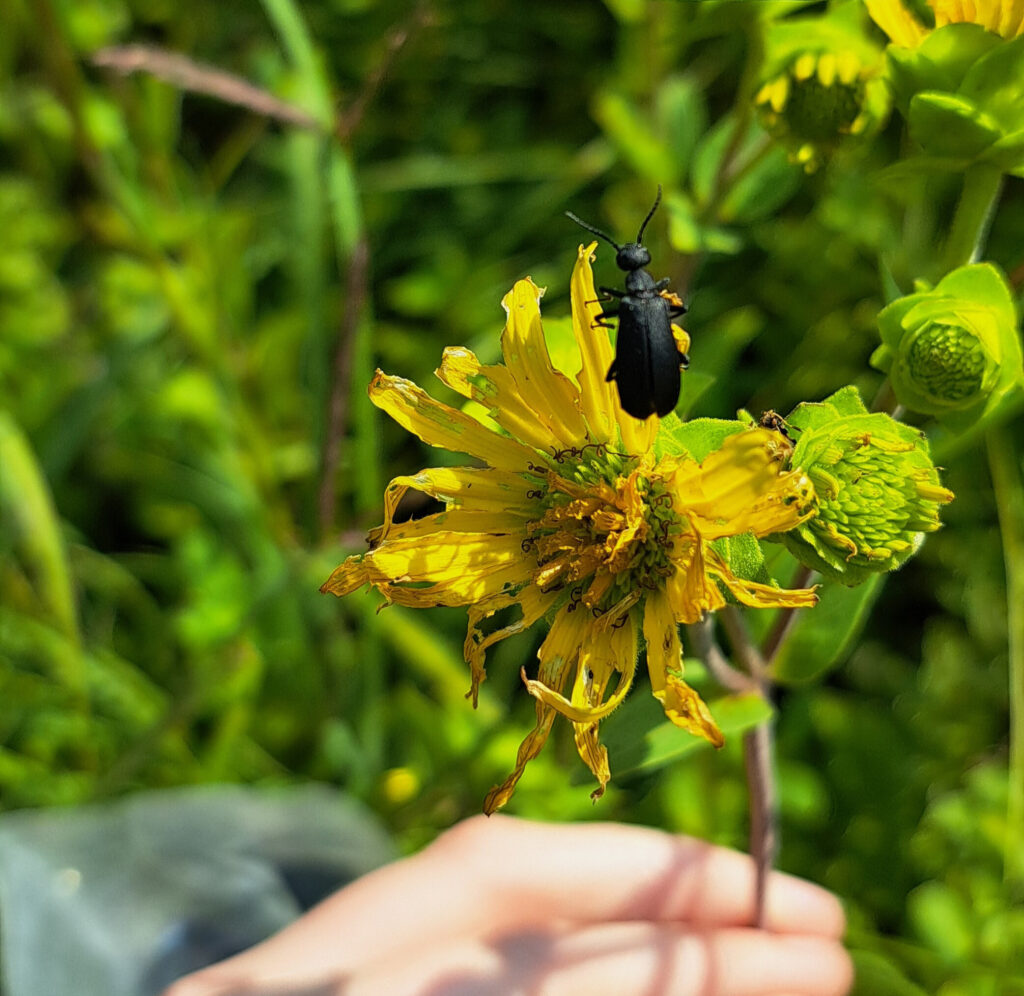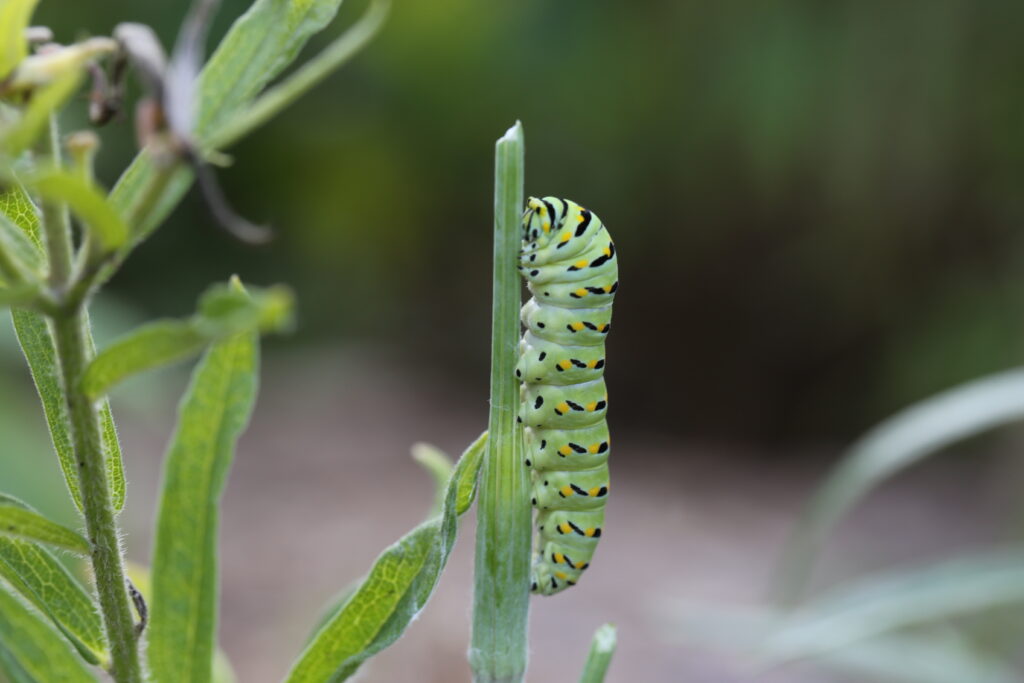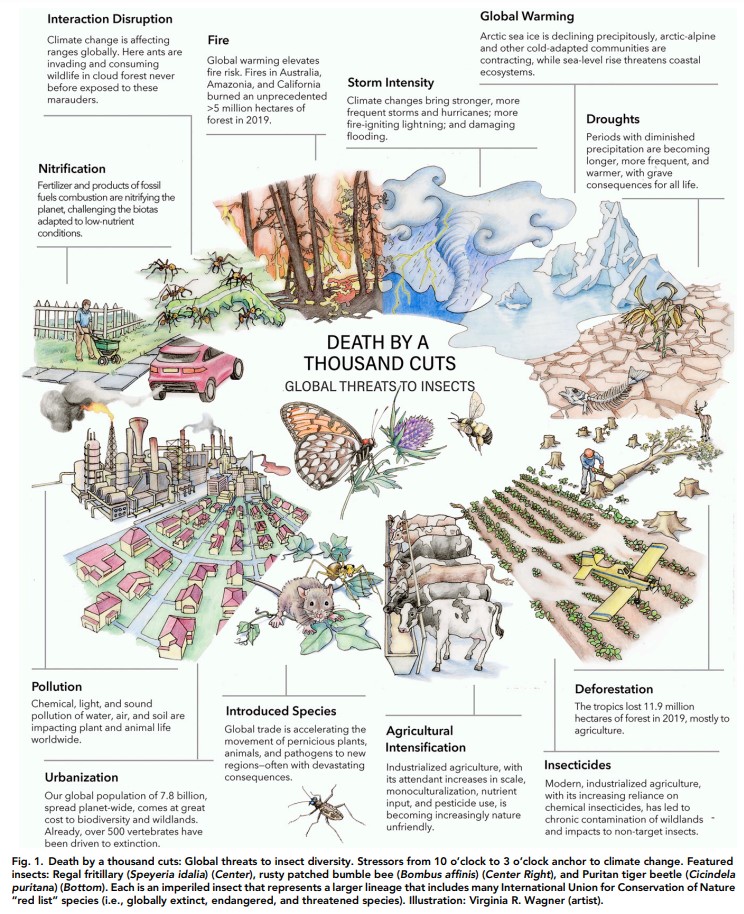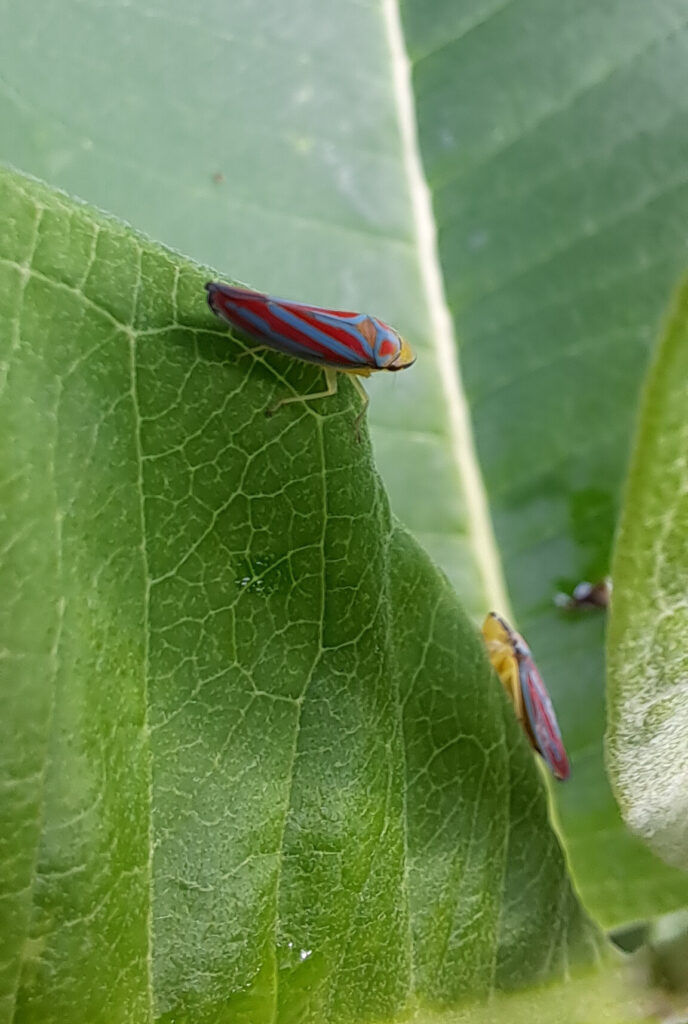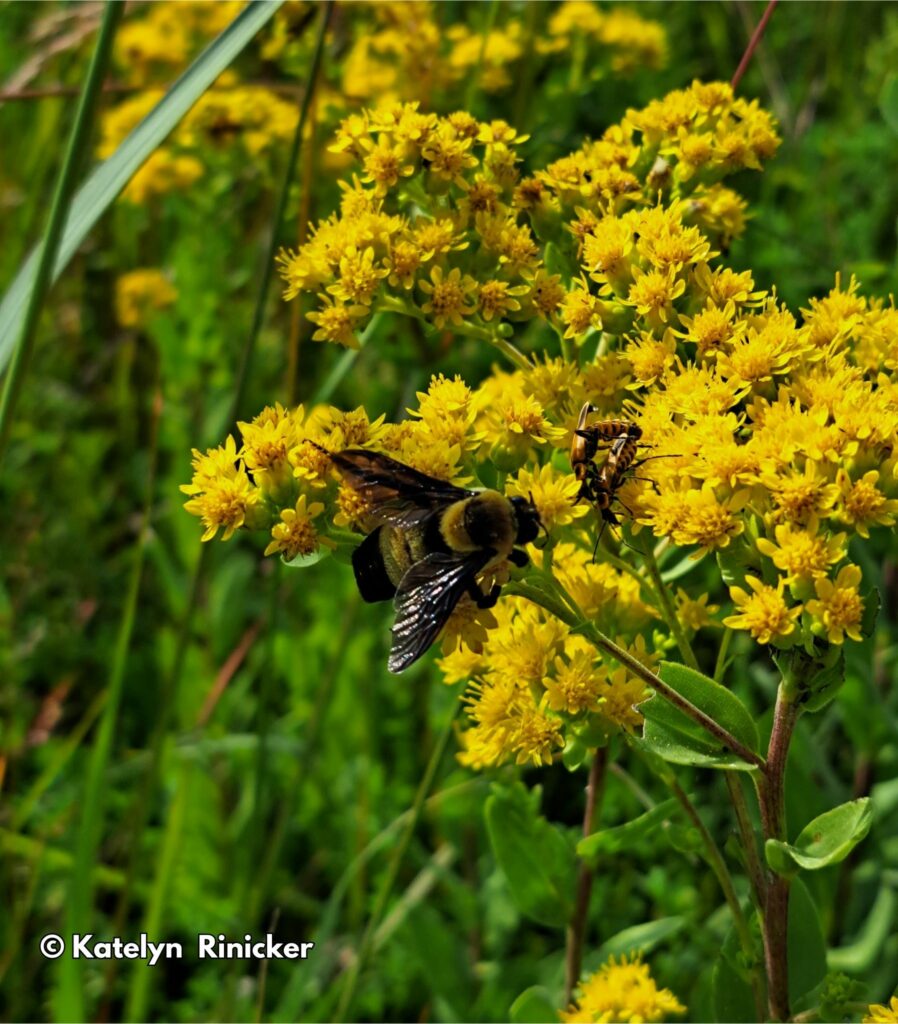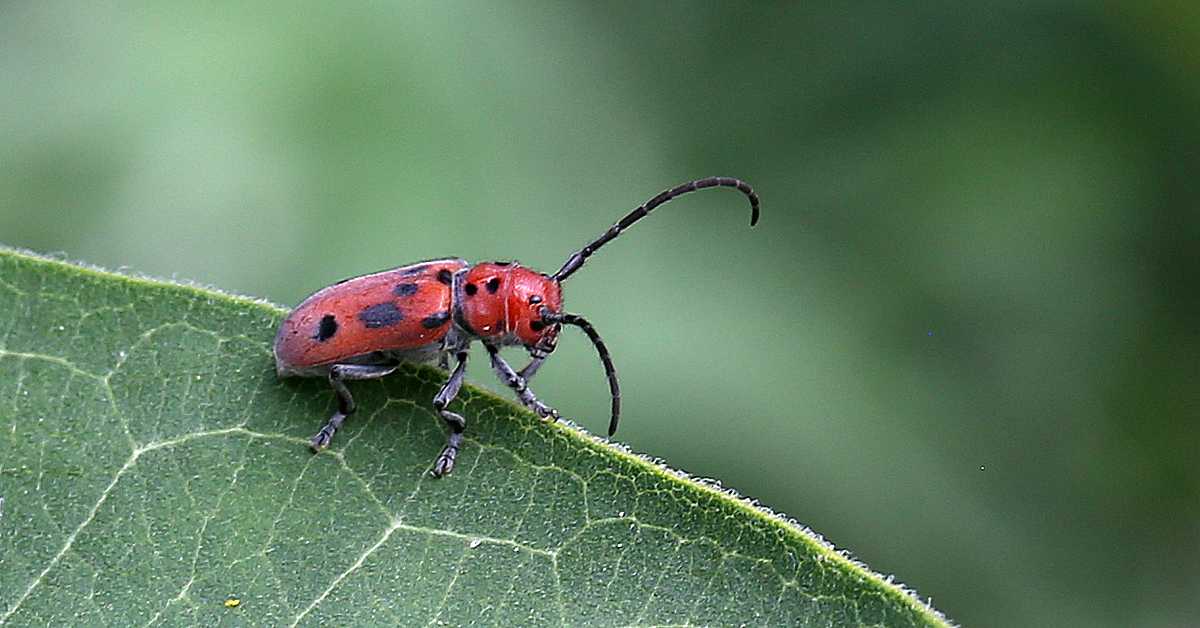Insect populations have dropped drastically over the last few decades. Bugs are the building blocks of our environment and provide many benefits such as beautiful flowers, food sources, soil aeration, and more. We can help these little creatures flourish by rebugging our community. I could spout science facts all day long about how insect populations have dwindled, you have likely already noticed.
When I was younger, we would visit my grandparents who lived 2 hours away. We would have to stop at least once to clean our windshield. Now I can drive over 6 hours to visit my parents and never have to clean my windshield. Or maybe, you have noticed that there aren’t as many Monarch butterflies as you used to see. We used to take walks and have a hard time not stepping on grasshoppers and we used to see fireflies every night. Now there seems to be a fraction of insects around as there used to be. According to Hallmann et al, insect biomass has declined by 74% – 83%. Many insects are beneficial and are not considered pests. They decompose plants, animals, and fecal matter. They aerate our soil, provide a food source for other animals, and pollinate our plants.
Why are they declining?
This is a tricky question as their decline is not caused by just one thing. They are dying a death by a thousand cuts. Habitat fragmentation and degradation, pollution, pesticide use (especially Neonictonoids), loss of native plants, light pollution, climate change, and many other reasons. Some species of insects need specific food sources or plants to lay their eggs on. Iowa has lost over 99% of its native landscapes, meaning it has become increasingly difficult for insects to find their host plants and habitats.
Insect Decline in the Anthropocene: Death by a Thousand cuts by Wagner et al assesses the metadata surrounding insect decline.
What can we do to help?
While this decline is very alarming, we can all help “rebug” our world.
If you have a minute:
- Don’t kill the bugs that have found their way into your home; instead, relocate them outside. If you don’t want to touch them, you can safely handle them with a piece of paper and a cup.
- Reduce pesticide use, or better yet, stop using it altogether – pesticides harm all insects, not just the small percentage that are considered pests
- Or use alternative methods such as putting food in containers so it is not available to insects
- Or put soapy water, cinnamon, lemon juice, or mint around the holes that they seem to be coming in at
- If you MUST kill them, use boiling water or cornstarch instead of chemicals
- Be untidy in your garden! Insects use weeds, old plant stems, wood, and leaves
- Reduce outdoor lighting – you can do this by incorporating motion sensors. Insects and a variety of other animals use the stars as navigation. Constant outdoor lighting disrupts and confuses their natural systems.
- Keep lawn grass longer – this provides shelter and a food source
If you have more time:
- Plant native gardens – this provides food sources and habitat, it also helps to connect habitats as insects can only travel so far before needing a break and a snack
- You can do this in containers, your yard, window boxes, or anywhere there is a little bit of space!
- Plant host plants – such as milkweed for monarch butterflies
- Grow your own produce – the flowers are great sources of nutrients for insects
- Compost – an open compost pile provides warmth, habitat, and food for invertebrates
- You can also use compost systems to build up soil health!
If you have a lot of time:
- Advocate for policies that promote re-wilding the state. This helps protect and create more natural areas. Write to your local, state, and federal governments to explain the importance of policies protecting insects and wildlife.
- Talk to your boss and landlords about creating native gardens
- Join community groups that support insects!
“The loss of even a small percent of insects might also be disproportionately consequential. They sit at the base of the food web; if they go down, so will many birds, bats, spiders, and other predators.”
– Ed Young

